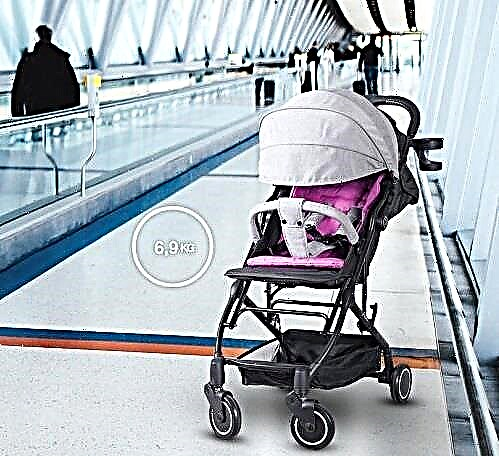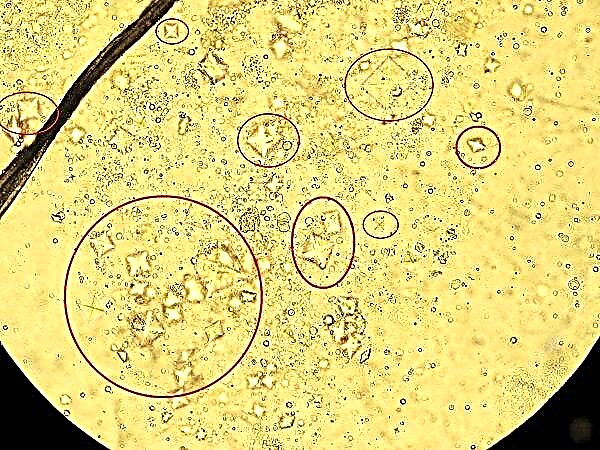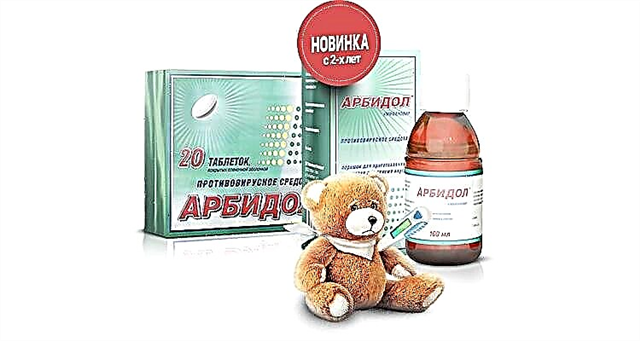
You went on vacation with your child, but a pleasant and long-awaited vacation was overshadowed by a sudden illness of the baby. And at first it seems that he caught a cold or "ate something", but in fact, the change in climate, time zone became the reason for the emergence of acclimatization in the crumb.
To treat a child in this situation for a cold or diarrhea is pointless and ineffective. This does not fix the underlying problem. What should parents do? How can you help your baby get through a difficult time?

What is it?
Acclimatization is a natural and biologically very complex mechanism that is extremely stressful for a child. The younger your child, the more difficult it is for him to cope with it.
Children from birth to 3 years old experience longer and harder the attempts of their small body to adapt to new conditions for themselves, to a different climate, a different duration of daylight hours, a new, unusual composition of air, water, and temperature. Children have insufficiently formed immunity, the process of developing protective reactions of the body to various stimuli is still underway. It is for this reason that acclimatization is more difficult for children than for adults.
Acclimatization affects many things - the child's nervous system, his digestion, blood pressure, excretory system, immune system, respiratory organs, etc.
Symptoms and Signs
If suddenly your baby starts acclimatization, you can recognize it by several rather vivid symptoms., which usually appear 2-3 days after arriving in a new area with a different climate:
- Sleep problems. The baby starts having insomnia or, on the contrary, constantly wants to sleep.
- Headache, dizziness. A toddler who can speak and express discomfort in words is likely to complain of headaches, persistent or episodic. Children who do not yet know how to speak will show that they have a headache with all their appearance, long and tedious monotonous crying, lethargy.
- Signs of a cold. The baby shows all the symptoms typical of a cold - a sore throat, a stuffy nose, a fever may rise.
- Signs of food poisoning or intestinal infection... The child starts to feel nausea, vomiting, diarrhea. Sometimes against a background of increased temperature.
- Deterioration of mood and behavior... Babies who are painfully experiencing acclimatization are very moody, irritable, they often cry, sometimes it is difficult for parents to understand what exactly the baby wants. The nervous system takes a particularly long time to adjust.
How long is the period?
The length of the acclimatization period directly depends on its severity and the age of the child. The more contrasting the change of scenery, the more difficult it is for the toddler, who is no longer happy to rest by the sea. For example, he constantly lives somewhere in Siberia, but he was taken to rest on vacation in sultry India with a tropical climate and humid air or Tunisia dried by the sun.

The average duration of the acclimatization period for children is 5-7 days. And by whatever means the parents try to reduce it, it is usually to no avail.
But after its completion it will be safe to say that the baby's own immune defense has "learned" something new, and the next time acclimatization will be much easier for him.
Main steps
- The first stage is the starting one. Outwardly, nothing has changed in the child, it is impossible to notice anything, all the processes take place inside. The body "turns on" the mode of operation in extreme conditions.
- The second stage is reactive. Usually it begins to manifest itself 2-3 days after arriving at a new place. The reactive period is associated with a sharp deterioration in the baby's condition, all the visible signs of acclimatization appear, which we talked about above.
- The third period is stabilization. The child's condition does not deteriorate anymore, it gradually comes to equilibrium, the functions of his body are restored. Symptoms may start to disappear, or they may persist for some time, but they no longer pose any threat to the child.
- The fourth period is the finishing one. Acclimatization has come. This is the longest period, it can last from several weeks to several years, but this is more relevant not for vacationers, but for those who decided on radical changes in their lives and moved to the other end of the world for permanent residence.
Features of acclimatization in children of different ages
The acclimatization period manifests itself differently in all children. It is possible that you will not even see any signs, the whole rest from start to finish will go smoothly. However, there are the following patterns depending on the age of the child.
In babies
Acclimatization in most children under 1 year old is a serious and rather difficult test. This period lasts for babies for a long time - from three weeks or more. How bad a child will feel depends on the state of his immune system, existing diseases, and general health.
Since such small children still have a very strong psycho-emotional connection with their mother, much in the acclimatization period will depend on how the mother feels and what emotions she experiences.
If a woman is calm, contented, pacified, then it will be much easier for the child to get used to the new living conditions.

For preschoolers
In children from 3 to 7 years old, acclimatization is smoother and easier than in infants. In many ways, this becomes possible because the child can already clearly explain what exactly worries him. In addition, his immunity was already in "scrapes", when the baby began to attend kindergarten, was sick with viral infections, influenza, SARS. It is easier for him to accept the new conditions.
On average, preschoolers' acclimatization lasts about one and a half to two weeks.

Schoolchildren
The acclimatization period in schoolchildren runs in the mildest form and lasts from 5 days to 10 days.
By school, a child often has time to acquire diseases that occur more often than others, some children already have chronic ailments. Most likely, it is they who will worsen during the acclimatization period. Therefore, it is easier for parents to “predict” the child's condition by taking medications for rest, which usually help him.

When is acclimatization most often easy?
The easiest way to tolerate acclimatization is:
- Children over the age of 8.
- Children whose immunity is strengthened by their parents throughout the year, not just a few weeks before the trip.
- Children who travel a lot.
- Children who have received all the necessary vaccinations, and the last vaccination took place at least one and a half months before the date of departure for rest.
- Children are somatically healthy.

How to ease this period?
- Something from the environment that is familiar to him will help to facilitate the period of acclimatization for the child. And if it is not possible to take the air of your native Novosibirsk with you to the hot beaches of the Red Sea, then it is not difficult to grab a bottle of drinking water from the northern latitudes. It is she who will help the body of the crumbs to adapt more easily to new food and water.
- If you are planning a trip to a region or country with a different time zone, it is better to help your baby get used to the new time in advance. To do this, a month before departure, you need to start adjusting the children's sleep and waking schedule, shifting it every day by 15 minutes in the right direction.
- The child's day regimen on vacation should be brought as close as possible to his usual home regimen, feeding, walking, playing and sleeping should be at about the same time.
- For a baby going through acclimatization, a drinking regimen is extremely important. He must drink enough to eliminate toxins from the body faster. To determine the individual fluid rate, the baby's weight must be multiplied by three. The resulting figure will be the required minimum. Do not experiment with tap water or natural sources of the area where you arrived. It would be better to buy non-carbonated bottled drinking water for your child to drink at the store.
- No matter how great the temptation is to rush to the beach immediately upon arrival, you should not do this on the first day. Regular walks away from the sea in a new area will help your baby to more easily take in the sea air and move more smoothly to water procedures.
The opinion of Dr. Komarovsky
The well-known pediatrician Yevgeny Komarovsky claims that the problem of acclimatization is somewhat exaggerated and far-fetched, since in healthy children, who, as such, went on a trip with their parents, the period of getting used to the new environment and climate should not be much complicated.
But a real catastrophe is threatened by his own parents, who often stuff the crumbs with food and fruits with all their might when he loses his appetite after the flight, or make him swim in the sea if he does not want to.
In the video presented, Doctor Komarovsky will tell you about all the nuances associated with traveling with children, including acclimatization.
Komarovsky emphasizes that when planning a trip, it is important not only to find out where the nearest restaurant, beach and water park will be located, but also to reliably find out whether there will be a clinic nearby, in case the child needs a doctor.
If we are talking about a vacation abroad, you need to thoroughly find out all the questions regarding health insurance, if necessary, pay for an additional package of services for a pediatrician.
Evgeny Komarovsky warns that it is not safe for babies from birth to 2 weeks of age to fly by plane.
What is the specificity of resting with children, how is acclimatization going, does everyone have it? The answers to these and many other questions will be given by Dr. Komarovsky in the next transmission cycle.
Tips
There is no point in treating acclimatization, and the treatment is unlikely to be effective. It is necessary to enable the child's immunity to "learn a lesson" on its own. Vitamin complexes (for children from 1 year old) will help with this. They can be individually recommended by your pediatrician, who should be contacted at least two months before the planned trip.

However, it's still worth collecting a children's first aid kit, because no one can predict how difficult and protracted the acclimatization will be for your child.

It makes sense to take with you on a trip antipyretic drugs for a child "Panadol", "Nurofen for children", "Efferalgan" in case the temperature exceeds 38.5.
Usually, there is no high heat during acclimatization, the temperature is kept at 37.5. Such a temperature rather indicates a normal reaction of the child's immunity to a new environment; it does not require the use of medications.
Coughing during acclimatization will help to remove Ambrobene syrup.
Runny nose will help to defeat washing with preparations based on seawater "Aqualor", "Aquamaris", in case of congestion, you can drip "Nazivin for children".
If a child has an ear ache, in this case it makes sense to take drops "Otinum".

Your first aid kit is a must-have drugs to normalize the child's digestion. In case of vomiting and diarrhea - "Smecta", from constipation (this can also happen) - "Duphalac", "Normase".
From wounds, scratches, abrasions and sunburn help "Miramistin" and "Bepanten".


It will be nice if you complete a travel first aid kit children's antiviral drug according to the age of the child, because weakened immunity during the acclimatization period may need help in the fight against the "stuck" virus. Your pediatrician will also help you choose it.

New food and water, as well as flight and relocation, can cause the child allergic reaction - redness of skin areas, itching, allergic rhinitis, cough. Prudent parents will always put an antihistamine drug, both local and general, in a travel medicine cabinet. For such purposes, usually take "Claritin", "Diazolin", "Suprastin".
And naturally, don't forget to capture thermometer for changing the temperature, baby sunscreens (creams and sprays), regular baby cream, patch and bandage.
Recreation prevention and planning
If you went to the Black Sea coast, keep in mind that the benefits of a sea vacation for the child's body will appear only after the end of acclimatization. This is an average of 10 days. Therefore, it is best to go with a baby to the sea for 20-30 days.
A week-long or ten-day rest will only tire the baby, who, moreover, immediately after the acclimatization has passed, will begin to re-acclimatize upon returning home. The minimum length of vacation so that the child gets at least a little benefit from the sea and the sun is at least 16 days.

If you are planning a trip to Turkey, keep in mind that this country has as many as five climatic zones. If this is your baby's first trip to warmer areas, choose the zone that is closest to the climate of your home region.

It is not worth taking a small child to the other end of the world on his first trip in his life. He will still have time to visit exotic Africa, Australia and Cuba. As a first trip, it is better to choose places where the climate is similar to your home.
For example, most Russians understand and understand the climatic situation in Abkhazia, Georgia, Crimea, on the Caspian Sea coast, on the Black Sea coast of Turkey, in Cyprus.

Ideal if the vacation is planned according to the age of the child. Doctors do not recommend infants to go beyond the dacha and the forest located next to it.
Experts do not advise kids under three years old to leave their native climatic zone. If you still decide to go to the sea with your family, choose a non-mass season for this - early June or early September.

When choosing a hotel or hostel, you need to understand that a small child does not need loud music and crowds of tourists for successful acclimatization. He needs a quiet and peaceful place, far from major cities, highways and noisy airports.
It is very harmful for children under 3 years old to visit countries with a significant shift in the time zone.
When choosing a method of transportation, it is better to give preference to a train or a car. A longer journey helps the baby's body gradually begin to rebuild while on the road. The flight, of course, is more preferable for parents, but not for a child, whose immunity will be launched in an emergency mode as soon as he, after rainy weather, which was at home in the morning, leaves the plane in a hot exotic country.


Reaclimatization
You returned home safely, tanned and happy, but the baby "decided" to get sick again. This is "reverse acclimatization" - re-acclimatization. Returning to their native climate becomes, to put it mildly, a surprise for children's immunity, which has just recently tuned in to new living conditions.
The symptoms will be the same as during acclimatization, however, they will not last long. If the ailment persists for 3-4 days, this is a reason to call a doctor.
Re-acclimatization usually does not require special treatment, it is enough to give the child vitamins and ensure a longer sleep than usual.
It is not recommended to resume visiting kindergarten or school immediately after arriving from vacation, the child needs time to fully recuperate. During this period, you should not give him vaccinations, expose him to stressful situations.

We also invite you to see the advice of an experienced pediatrician on the acclimatization of children.



